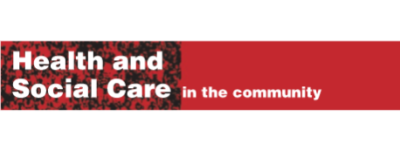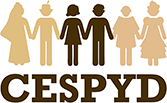
Publicaciones
Promoting Posttraumatic Growth among the Refugee Population in Spain: A Community‐based Pilot Intervention
Referencia: Paloma, V., de la Morena, I., & López‐Torres, C. (2020). Promoting posttraumatic growth among therefugee population in Spain: A community‐based pilot intervention. Health & Social Care in the Community, 28 (1), 127-136. doi: https://doi.org/10.1111/hsc.12847
Resumen: Various international organisations have identified the development of programmes that mitigate the negative impact that forced displacement has on refugees’ mental health as a priority intervention area. From this perspective, this study seeks to lend empirical support to a community‐based pilot intervention aimed at promoting posttraumatic growth (PTG) among refugee adults arrived to Seville, the capital of Andalucía (southern Spain). PTG constitutes a mental health indicator that refers to the positive personal transformations refugees undergo as a consequence of experiencing forced displacement. This concept does not negate the undeniable personal suffering forced displacement causes for refugees; rather, it focuses on the positive changes this event has the potential to bring about. Forty‐seven individuals (age, M = 33 years; 20 women) from several countries in conflict participated in the intervention over 15 weeks (March–June 2017). The implementation process comprised two phases: (a) training a group of settled refugees to become peer mentors; and (b) holding cultural peer‐support group sessions made up of newly arrived refugees led by the mentors. Following quantitative and qualitative data collection (using the ‘Posttraumatic Growth Inventory’ (PTGI; Tedeschi & Calhoun, Journal of Traumatic Stress, 1996, 9, 455) and participants’ written evaluations and comments, respectively),and adopting a pretest‐posttest evaluation design, significant improvements were found in four of the five PTG factors: ‘appreciation of life’, ‘personal strength’,‘relating to others’ and ‘new possibilities’. However, no significant differences were observed for ‘spiritual change’. We also documented implementation outcomes which revealed high intervention acceptability, appropriateness and feasibility. This study highlights how PTG shown by the refugee population can be actively improved through a community‐based intervention, specifically by creating supportive community settings that adopt a mentorship and peer‐based approach. The limitations and contributions of this research that address the current challenges behind promoting the mental health of refugees in places of settlement are discussed.
Palabras clave: Community‐based intervention, Mental health, Posttraumatic growth, Refugees.
Publicación completa: https://onlinelibrary.wiley.com/doi/full/10.1111/hsc.12847
